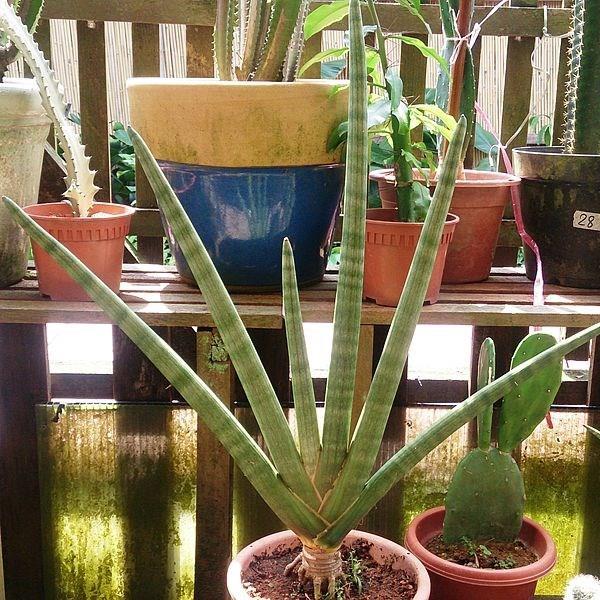
Sansevieria cylindrica
Cylindrical Snake Plant
Sansevieria are flowering plants native to Africa, Madagascar and southern Asia, and grown as houseplants in cooler climes. They do well with warmth and bright light, but will also tolerate shade. It is important that they are grown in well-draining compost and not over-watered , or they may rot. Sansevieria cylindrica has striped, smooth, round, grey-green leaves that grow to around 1m tall, and has greenish-white tubular flowers that are tinged with pink.
Contributed by @lovestogarden
-
Partial shade
-
Very little water
-
Not Frost hardy
-
Moist and free draining
Common name
Cylindrical Snake Plant
Latin name
Sansevieria cylindrica
type
Succulent
family
Asparagaceae
ph
5.0 - 7.5 Acid - Neutral
Plant & bloom calendar
-
Best time to plant
full grown dimensions
 0.50 M
1.00 M
0.50 M
1.00 M
Sansevieria cylindrica
Sansevieria are flowering plants native to Africa, Madagascar and southern Asia, and grown as houseplants in cooler climes. They do well with warmth and bright light, but will also tolerate shade. It is important that they are grown in well-draining compost and not over-watered , or they may rot. Sansevieria cylindrica has striped, smooth, round, grey-green leaves that grow to around 1m tall, and has greenish-white tubular flowers that are tinged with pink.
Planting in pots
From Early Spring TO Late Winter
Snake plants do well in a good potting soil as they are not very demanding. Sansevierias are very “succulent“; “heavy plants” which hold lots of water in their leaves. It is often recommended to create a “heavy soil” by amending the potting mix with some sand otherwise as they grow in height, they will become top-heavy and can fall over!
Propogation
From Early Spring TO Early Spring
Sansevierias propagate easily by division; since most varieties sucker freely, this is usually the preferred method of propagation. Snake plants propagate from leaf cuttings, clumps or rhizome cuttings.



























